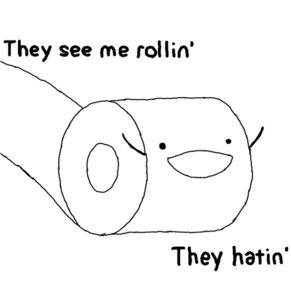12762898
Atoms and Reactions Quiz 2
Resource summary
Question 1
Question
What is the relative mass of an electron?
Answer
-
1/200
-
1/2000
-
1/20
-
1
Question 2
Question
A negative charge means that there's more protons than electrons
Answer
- True
- False
Question 3
Question
What did Bohr discover?
Answer
-
Protons
-
Electrons
-
Neutrons
-
Ions
-
Shells
-
Noble gases are inert
-
Plum pudding model
-
Atoms are solid spheres
-
The nucleus is positively charged
Question 4
Question
Relative isotopic mass is the average mass of a molecule compared to 1/12 of the mass of an atom of carbon-12
Answer
- True
- False
Question 5
Question
What is the equation linking moles, mass and molar mass?
Answer
-
Moles = molar mass / mass
-
Molar mass = moles / mass
-
Moles = mass / molar mass
Question 6
Question
If [blank_start]temperature[blank_end] and pressure stay the same, one mole of any gas always has the same [blank_start]volume[blank_end] - this is known as the molar gas volume ([blank_start]dm³mol⁻¹[blank_end]).
Answer
-
concentration
-
temperature
-
volume
-
mass
-
partial pressure
-
moldm⁻³
-
dm³mol⁻¹
-
gdm⁻³
Question 7
Question
Acids are proton acceptors
Answer
- True
- False
Question 8
Question
H⁺ ions can never exist by themselves in water
Answer
- True
- False
Question 9
Question
What are the products of a reaction between acids and bases?
Answer
-
Salt and water
-
Salt and hydrogen
-
Salt, carbon dioxide and water
-
Salt
Question 10
Question
What are the products of acids and metal hydroxides?
Answer
-
Salt and hydrogen
-
Salt and water
-
Salt, carbon dioxide and water
-
Salt and metal oxides
Question 11
Question
The water in a lattice is called [blank_start]water of crystallisation[blank_end]. A solid salt containing water of crystallisation is [blank_start]hydrated[blank_end]. A salt is [blank_start]anhydrous[blank_end] if it doesn't contain water of crystallisation.
Answer
-
water of crystallisation
-
hydrated
-
anhydrous
Question 12
Question
In the presence of an acid, what colour does methyl orange turn?
Answer
-
Red
-
Yellow
-
Pink
-
Orange
-
Colourless
Question 13
Question
In the presence of an alkali, what colour does phenolphthalein turn?
Answer
-
Red
-
Yellow
-
Pink
-
Orange
-
Colourless
Question 14
Question
Compared to a monoprotic acid, you'll need to double the number of moles of base to neutralise a diprotic acid
Answer
- True
- False
Question 15
Question
The actual mass/yield will always be [blank_start]less[blank_end] than the theoretical yield as not all chemicals [blank_start]react[blank_end] fully and some chemicals are [blank_start]lost[blank_end] between transfers
Answer
-
less
-
react
-
lost
Question 16
Question
In a substitution reaction, the atom economy is always less than 100%
Answer
- True
- False
Question 17
Question
What are the CORRECT rules for oxidation numbers?
Answer
-
Uncombined elements (or elements bonded to identical atoms) have an oxidation number of 0
-
Oxygen always has an oxidation number of -2
-
Hydrogen always has an oxidation number of +1, except in metal hybrids where it's -1 and molecular hydrogen where it's 0
-
The sum of the oxidation numbers for a neutral compound is 0
-
For molecular ions, each of the constituent atoms has the same oxidation number of as the molecule's overall charge
Question 18
Question
Oxidation is a gain in electrons
Answer
- True
- False
Question 19
Question
In the reaction below, which elements have been oxidised and which have been reduced:
2K + H₂SO₄ --> K₂SO₄ + H₂
Answer
-
K has been oxidised, H has been reduced
-
H has been oxidised, K has been reduced
-
S has been oxidised, K has been reduced
-
K has been oxidised, S has been reduced
Question 20
Question
What is the chemical formula of sulphate (VI) ions?
Answer
-
SO₃²⁻
-
SO₄²⁻
-
SO₃⁻
-
SO₄⁻
0 comments
There are no comments, be the first and leave one below:
Want to create your own Quizzes for free with GoConqr? Learn more.


